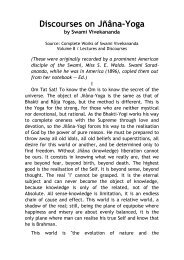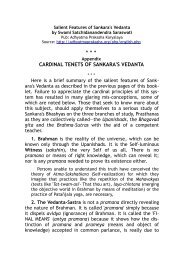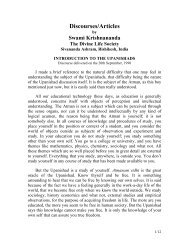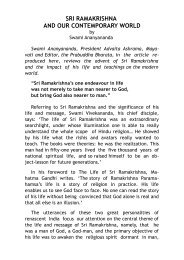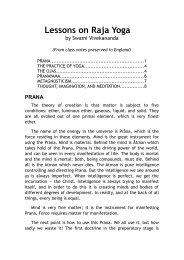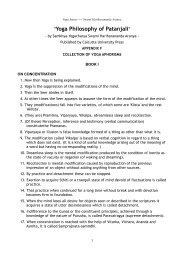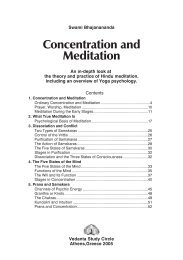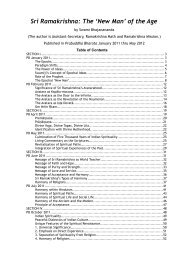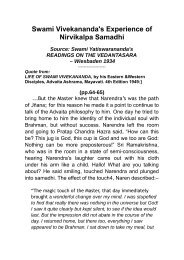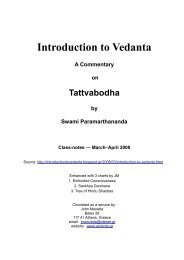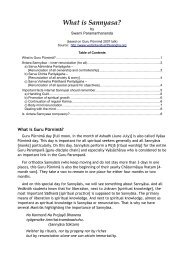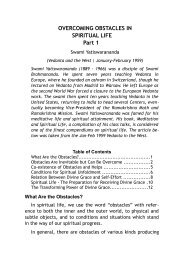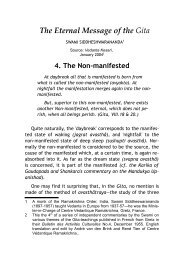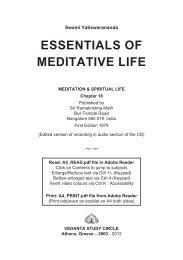Gita Summaries: Chapters 1-11 - Vedanta
Gita Summaries: Chapters 1-11 - Vedanta
Gita Summaries: Chapters 1-11 - Vedanta
You also want an ePaper? Increase the reach of your titles
YUMPU automatically turns print PDFs into web optimized ePapers that Google loves.
Swami Paramarthananda on <strong>Gita</strong> – <strong>Summaries</strong> of Chaps 1-<strong>11</strong><br />
Learn to mature your mind from gross things to spiritual; do the Panchamaha Yagna<br />
everyday; honour your pitrus, rishis, devas, plants, animals, and be a benefactor in<br />
society. How By understanding what karma yoga is.<br />
Next class we shall discuss that!!!<br />
Posted by Sathyanarayanan at 9:19 PM<br />
Chapter 2 — Sankhya-yogah<br />
[The Yoga of Knowledge]<br />
The second chapter deals with 4 topics:<br />
Saranagati (Arjuna’s surrender)<br />
Karma yoga<br />
Jnana yoga<br />
Mukti<br />
Friday, May 15, 2009<br />
The word “yoga” means “Samatvam” or “equanimity”.<br />
The mind loses its equanimity due to “anxiety over the future”. So the mind must learn<br />
to develop strength through devotion to God. Or the mind could be agitated over<br />
present choiceless situations. Brooding over the past also disturbs the mind. So either be<br />
“prepared” for the future or learn to “accept” the present.<br />
Astanga Yoga of Patanjali is also recommended as Karma yoga calls for actions; actions<br />
are extrovert and makes the mind outside-focused. Such a mind can never introspect or<br />
come to Jnana yoga [yoga of self-investigation]. A mind must learn to be without its<br />
constant diet of people and actions.<br />
What is the benefit of Karma Yoga<br />
Jnana yoga yogyatha!!!!<br />
To come to Jnana Yoga there are four important qualifications.<br />
a) Discrimination between what is slavery and what is liberty; dependence and<br />
independence. I must realize this clearly,” I must depend on myself more and more and<br />
less and less on outside people and events”.<br />
b) Dispassion: I must not lean (have dependence) on anything. This is a stage for giving<br />
up strong dependences.<br />
c) Discipline: The body-mind complex is just tools and I must learn to discipline them.<br />
The body must be kept fit, and the mind strong. Sense organs must obey you and not<br />
drag you everywhere. Lastly, you also need to have language skills to understand the<br />
scriptures<br />
4



